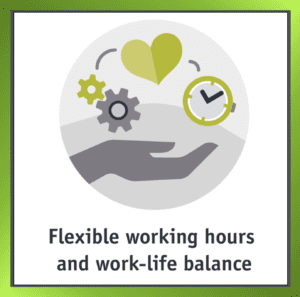Flexible Working Now Outranks Pay as Top Employee Priority
Businesses are starting to recognise the growing evidence that flexible working is no longer a mere perk but a fundamental workplace necessity. This perspective was strongly reaffirmed at a recent Westminster roundtable, hosted by Peter Dowd MP. The session, organised by the Policy Liaison Group on Workplace Wellbeing, brought together parliamentarians, including Baroness Lister, and various stakeholders to discuss how flexible working can enhance both economic performance and employee wellbeing.
The consensus among participants was clear: flexible working is crucial for modernising workplace culture and boosting productivity. Despite the UK’s long working hours, productivity remains stagnant, highlighting the need to shift from valuing hours worked to prioritising outcomes.
Gethin Nadin, Chair of the Policy Liaison Group, noted a significant change in priorities, stating, “Flexible working options have, for the first time in two decades, outstripped pay as the number one thing employees look for in a new job.”
The discussion highlighted the importance of embedding flexible working into organisational culture, not just as a scheduling option, but as a broader mindset shift. Overcoming legacy management habits and resistance to change was identified as a major challenge.
Roopa Nagori, a Senior Lecturer at Coventry University, emphasised the need for managerial training: “Flexible working is not just about changing hours; it’s about changing mindsets. Managers must move from measuring performance by attendance to valuing outcomes and supporting autonomy.”
Peter Dowd MP highlighted the timeliness of these discussions, particularly with ongoing changes in work dynamics, including the impact of artificial intelligence. He advocated for a four-day workweek, linking better working conditions to increased productivity and resilience.
James Reeves from the 4 Day Week Campaign supported this with compelling data: “Our largest pilot showed a 57% drop in staff turnover, improved mental health, and reduced anxiety, fatigue, and sleep issues. This isn’t about ideology; it’s about results.”
Baroness Lister urged consideration of diverse flexible working models, noting the benefits for women with caring responsibilities. Meanwhile, Dr. Gemma Dale from Liverpool Business School cautioned that successful implementation requires proper support and structures to avoid unintended outcomes.
The benefits of flexible working extend beyond individual organisations. Gethin Nadin highlighted that over 80% of UK employees would consider leaving their job if flexible working options were removed, emphasising its economic impact and potential to improve public health.
The insights from this roundtable will inform the Policy Liaison Group’s upcoming Employer Duty of Care Guidelines, aimed at helping organisations create healthier, more productive work environments.
About the Policy Liaison Group on Workplace Wellbeing
Founded in September 2024, the Policy Liaison Group unites experts, employers, and policymakers to advance workplace wellbeing throughout the UK. Under the leadership of psychologist and author Gethin Nadin, the group delivers evidence-based recommendations that influence policy and organisational practices. Previous discussions have centred on enhancing women’s workplace wellbeing and addressing mental health issues.

